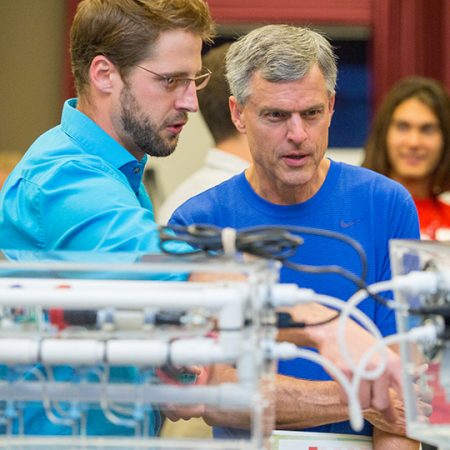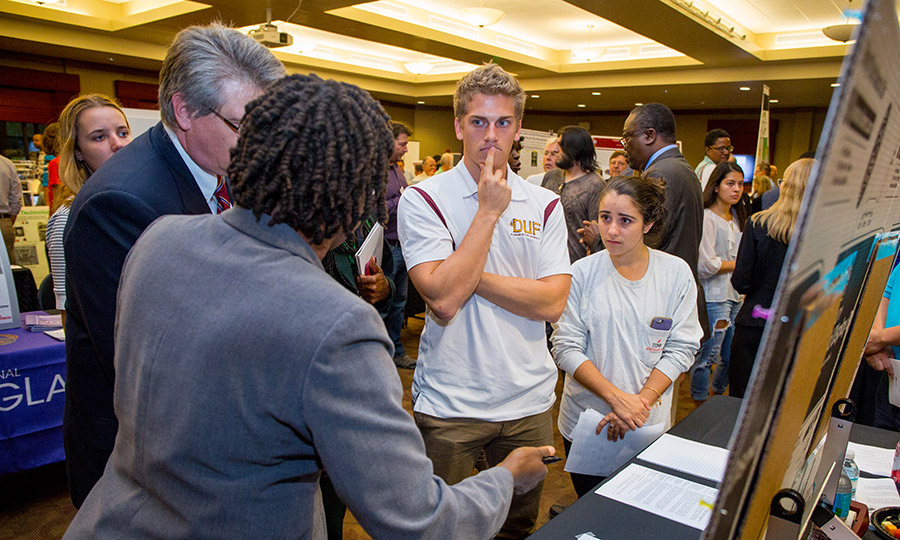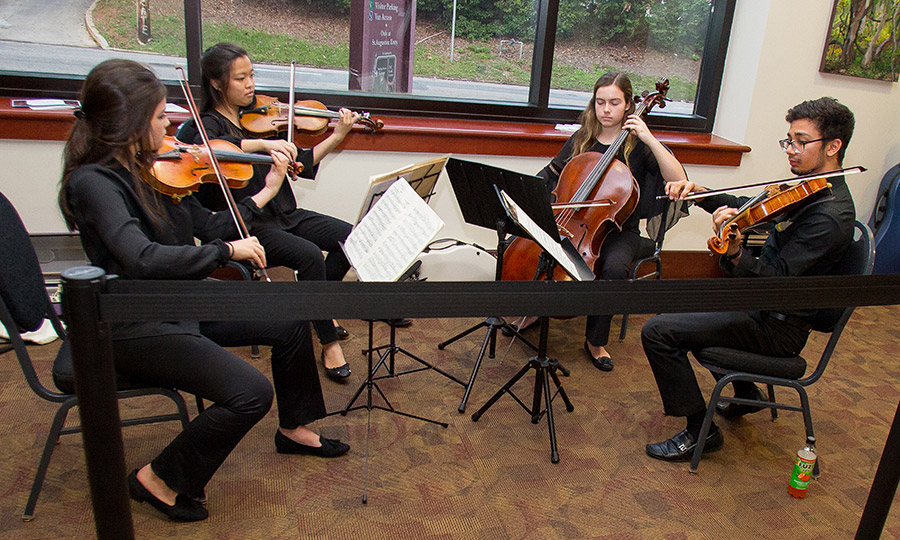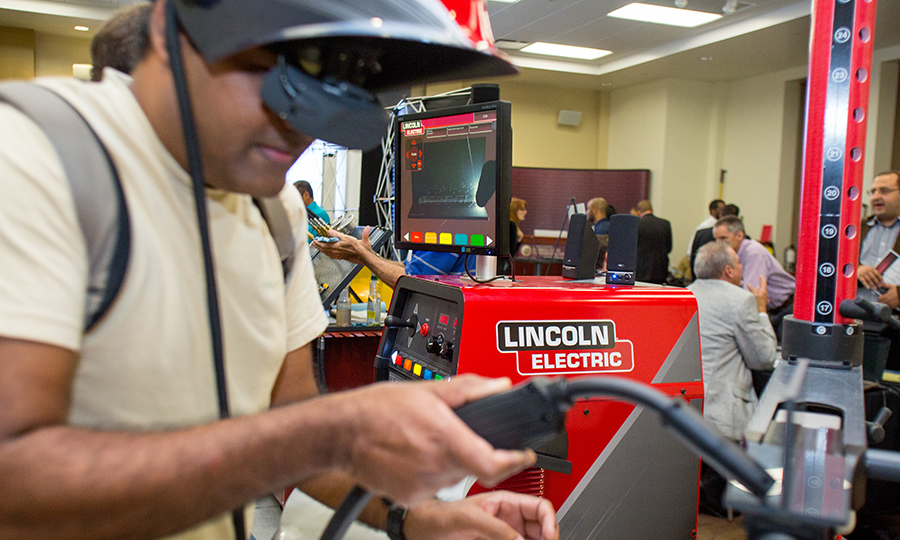
higher education institutions by showing off their ideas, inventions and creative endeavors to the
local community.
It was a night of technology. It was a night of music. It was a night of economic development.
The inaugural Discovery on Parade event on Dec. 1 showcased the best of Tallahassee’s three higher education institutions by showing off their ideas, inventions and creative endeavors to the local community.
“Each of Tallahassee’s three higher education institutions have so much more going on beyond the expected academic focus,” said FSU Vice President for Research Gary K. Ostrander. “This was the perfect opportunity for all of us to come together and show our community another side of what we are working on and what we are capable of accomplishing.”
“TCC is proud to join our higher education partners in giving the community a first-hand look at how we are helping to fuel the local economy,” said TCC Vice President for Workforce Development Kim Moore. “Whether it involves oysters from our aquaculture program, sparks from our welding program or ones and zeros from our computer networking program, TCC students are getting the skills they need to keep our economy growing.”
Jointly hosted by FAMU, FSU and TCC, the community-themed event provided a unique preview of new and existing companies created through research endeavors, live technology demonstrations by researchers and their students, and video presentations about the directions of select research and workforce development efforts at each institution.
For instance, Shuyuan Mary Ho, an assistant professor in the College of Communication and Information at FSU demonstrated a software application she and her research team developed to assess a human’s disposition and identify potential dangerous behaviors.
Corporations, government organizations — and even people looking for a date —communicate daily in cyberspace, but many of them have never had a face-to-face meeting or even talked on the phone with one another.



“This software application can be thought of as a form of artificial intelligence for detecting changes in users’ motivation and trustworthiness,” Ho said. “Using a variety of mechanisms, this system creates a statistical user profile and learns about users’ information behavior patterns based on language and dialogue with other users in social media communication.”
In another section of the event, Robert Wandell, a graduate student in the Florida A&M University-Florida State University College of Engineering set up a full display of the plasma system he helped develop that could revolutionize organic farming. The exhibit featured sustainable on-site production of nitrate (fertilizer) and hydrogen peroxide (fungicide) from air and water with plasma discharge for agricultural applications.
“These organic crops are highly susceptible to disease, which makes them less profitable,” Wandell said. “Our technology could aid organic farming or sustainable farming.”
Across the aisle from Wandell was Jonathan Shih and Kathleen Qui, two representatives of General Capacitor, LLC, a tech spinoff company born from FSU research that focuses on the development and manufacture of lithium-ion supercapacitors. General Capacitor licenses supercapacitor technology developed by Jim P. Zheng, a Florida A&M University-Florida State University College of Engineering professor.
“Supercapacitors have great advantages over rechargeable batteries in that they charge and discharge energy very rapidly and last much longer overall,” Zheng said. “However, the cost of those advantages is a smaller pool of energy to draw from, which currently limits how and where they can be used. This new technology significantly increases their energy pool, opening up a range of new uses in areas such as the automotive and alternative energy industries.”
Discovery on Parade ended up featuring more than 75 exhibits and drew in approximately 600 people from around the community. Sponsors for the event include Thomas Howell Ferguson P.A., the Leon County Research and Development Authority and the City of Tallahassee.




